
Nothing special, just history, drawings of historical figures in some… er… non-canonical relationships and fun! 🥂25 year old RussianHe/him
258 posts
Now We Expand, Part 2/? Being The Disaster That Is
Now we expand, part 2/? being the disaster that is
Canning
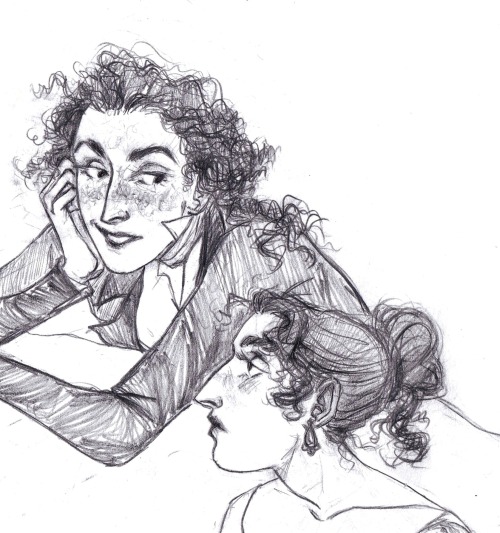
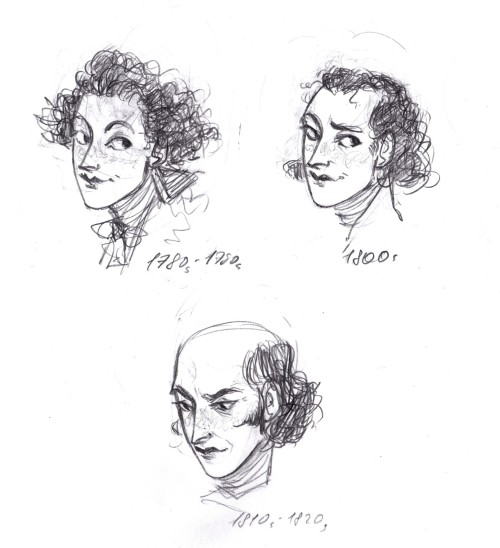
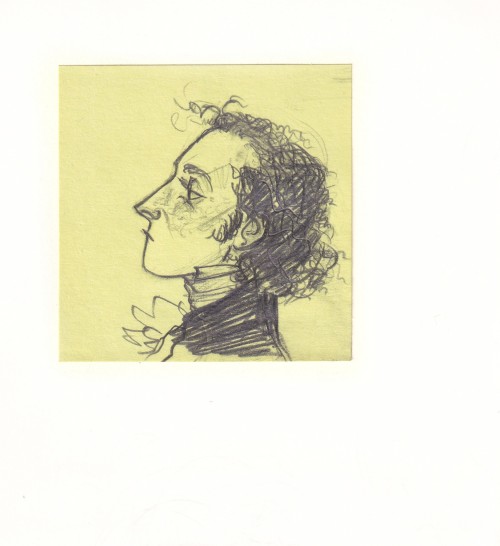
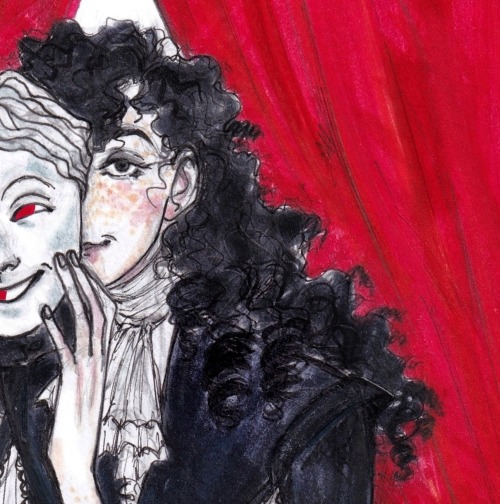
You know, war crimes
-
 liketwoswansinbalance liked this · 1 year ago
liketwoswansinbalance liked this · 1 year ago -
 spaceravioli2 liked this · 1 year ago
spaceravioli2 liked this · 1 year ago -
 chevi46772 liked this · 1 year ago
chevi46772 liked this · 1 year ago -
 entecup liked this · 1 year ago
entecup liked this · 1 year ago -
 cerumilla liked this · 2 years ago
cerumilla liked this · 2 years ago -
 briefangelshark liked this · 2 years ago
briefangelshark liked this · 2 years ago -
 annieofwessex liked this · 2 years ago
annieofwessex liked this · 2 years ago -
 ijustreallylovemaryshelley liked this · 3 years ago
ijustreallylovemaryshelley liked this · 3 years ago -
 thereddenedking liked this · 3 years ago
thereddenedking liked this · 3 years ago -
 werewolfetone reblogged this · 3 years ago
werewolfetone reblogged this · 3 years ago -
 acrossthewavesoftime liked this · 3 years ago
acrossthewavesoftime liked this · 3 years ago -
 nordleuchten liked this · 3 years ago
nordleuchten liked this · 3 years ago -
 rarelyseencephalopod liked this · 3 years ago
rarelyseencephalopod liked this · 3 years ago -
 werewolfetone liked this · 3 years ago
werewolfetone liked this · 3 years ago -
 koda-friedrich liked this · 3 years ago
koda-friedrich liked this · 3 years ago -
 count-lero reblogged this · 3 years ago
count-lero reblogged this · 3 years ago -
 count-lero liked this · 3 years ago
count-lero liked this · 3 years ago
More Posts from Count-lero
"The disease was getting worse with every passing hour, and all the efforts of doctors allowed to avoid death only for a while. On October 15, after a quarter past nine in the evening, the earthly life of our Prince came to an end. He died in the arms of his elder brother, who hurried to join him; in the presence of his wife, his younger sister Eleanore, his niece Theresa, Princess von Lobkowitz, his two younger sons, his inner circle and servants - in all the fullness of condolences, love and loyalty that this earthly realm can grant us. His eldest son, Prince Frederick, summoned from a distant land of Hungary, where his service kept him, could not be present at this sad but sacred moment. The news of what had occurred caught him by surprise in the middle of his journey through Bohemia.
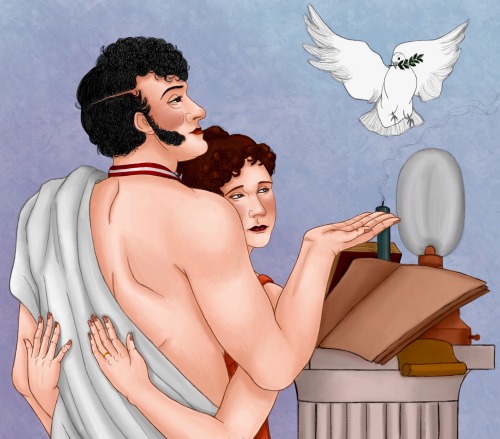
In what place should the Prince's body have rested? Reverence for the glory he had won and love for the Fatherland argued about it on the day of his death..."
Today is the 202nd anniversary of field-marshal Schwarzenberg’s death and I thought that the only right thing to do was to depict him with his admirable wife, Maria Anna, Marianna or - simply but with much-much-much love - Nani, whom prince Karl loved with all of his heart and soul.
(Perhaps, there is too much ancient pathos but it was done with much respect towards both of them. 🏛️🕊️)
Every time I start thinking about the fate of this wonderful family, it brings tears to my eyes. They were blessed with incredibly deep feelings but didn’t have enough time to enjoy them together peacefully…
But they still had some! And that’s the most important thing to know. 🌺
My Trip to Austerlitz (pt. 1)
The sequel to last week’s My Trip to Koniggratz! expect pictures of museums, fields, and heavy MilHist nerdery.

The battle of Austerlitz was fought near Slavkov in what is now the Czech Republic on 2 December 1805 between Napoleon’s French Grande Armée (c. 70,000 strong) and the allied forces of Russia and Austria (c. 90,000). It is generally considered Napoleon’s greatest victory.

The battlefield is big, stretching over thirteen kilometres and incorporating half-a-dozen villages. The main feature is a low ridgeline known as the Pratzen Heights, and the village of Pratzen itself, which sits at its base. There’s a museum on the heights dedicated to the battle.
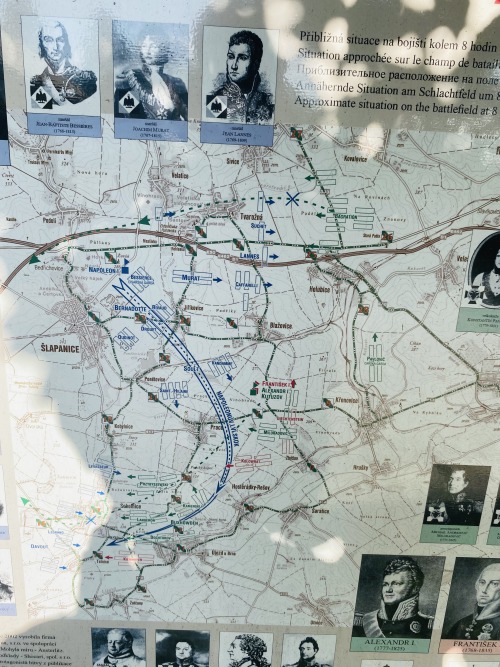

Needless to say, it has the obligatory uniforms.

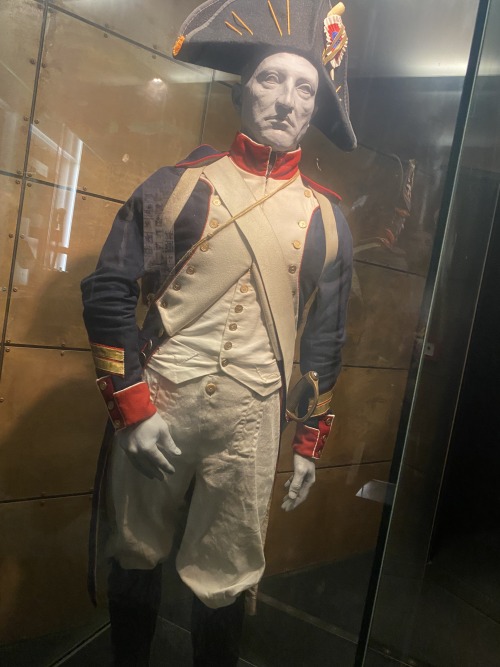


And the obligatory cannon. The battle is sometimes known as the battle of the three emperors after Napeoleon, the Russian Tsar Alexander, and the Austiran emperor, Francis II.

Outside is the Cairn of Peace, built in the early 20th century.
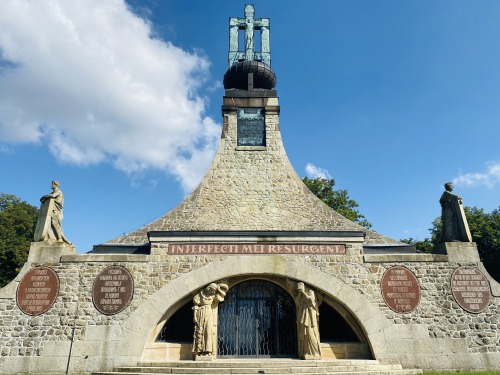
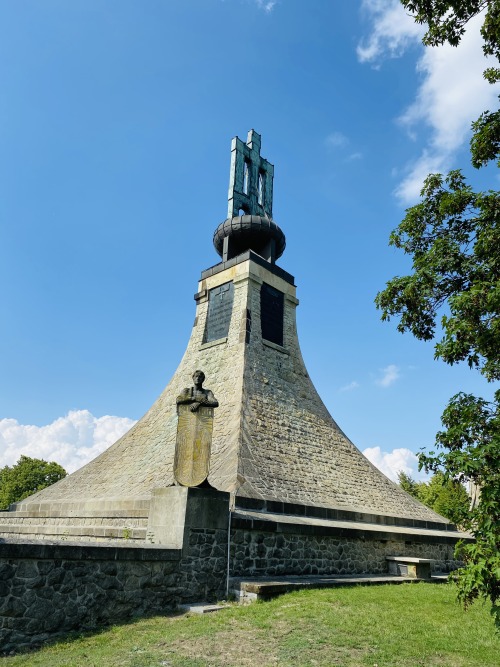
Napoleon’s army, outnumbered, had been withdrawing before the Russo-Austrian advance throughout late November 1805. Hoping to lure his enemies into a decisive battle, he deliberately abandoned a strong position on the Pratzen Heights, hoping to lure the Allies into taking it. They duly did.
Napoleon adopted a defensive stance along a stream known as the Goldbach. He deliberately weakened his right flank at the villages of Tilnitz and Sokolnitz, hoping the Allies would try and attack him there while knowing he had reinforcements marching from Vienna bound for that location.
While the Allies were lured off the heights they had first been lured onto, Napoleon would then strike at their weakened centre, taking the ridgeline.
The battle began early on 2 December with an Allied assault on the village of Tilnitz. This quickly spread to neighbouring Sokolnitz. Both locations were the scene of ferocious fighting throughout the day as they were taken and then retaken, possibly as many as five times.
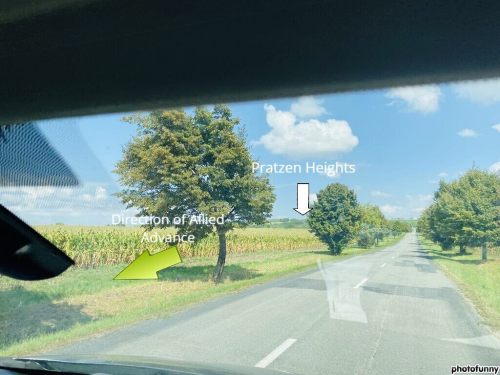
These are barns in Sokolnitz that were using as strong points by both sides, and later as makeshift prisons for captured Russians.


Sokolnitz castle, another centre of the fighting in this southern sector of the battlefield. It’s now an old people’s home.
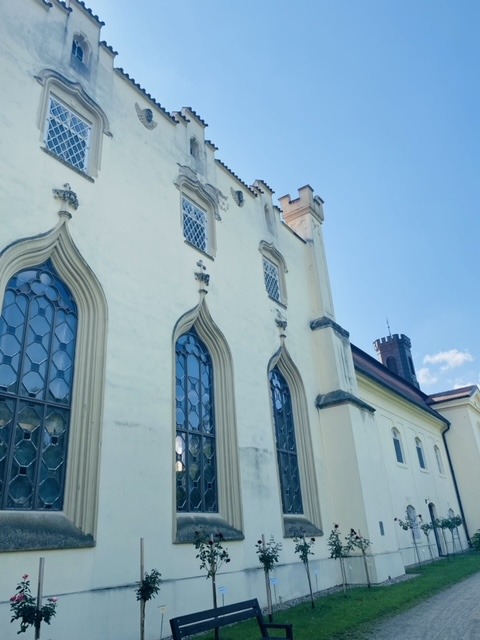
By mid-morning 3 of the 4 main Allied columns had moved down off Pratzen Heights to attack Tilnitz and Sokolnitz. The 4th was still on the heights however, as it had been disrupted by Allied cavalry who moved through it heading for the north of the battlefield.
General Kutuzov, a veteran Russian commander, didn’t want to leave Pratzen largely undefended, but the Russian Tsar, Alexander, ordered him down. Before he could, however, Napoleon struck.
This is the view from the highest point of the Pratzen heights looking out over Pratzen village towards the French centre. On the day of the battle there was a heavy fog, so it was impossible to see French forces massing for the masterstroke here.

The French advanced and, after overcoming their shock, the Allies scrambled forces to intercept and stop them seizing the ridgeline. Heavy fighting flared in Pratzen village itself, and along the slopes.

This is the view from the opposite side. Napoleon spent the morning on Zuran hill. Here we see what Napoleon would have looking towards the Allied centre on Pratzen Heights.


While all this was happening, fighting also flared in the northern sector of the battlefield, around the villages of Holubitz and Bosenitz. A ferocious cavalry engagement developed in these fields.

The deaths of an estimated 7,000 horses are commemorated here, on ground that now holds a functioning stable.
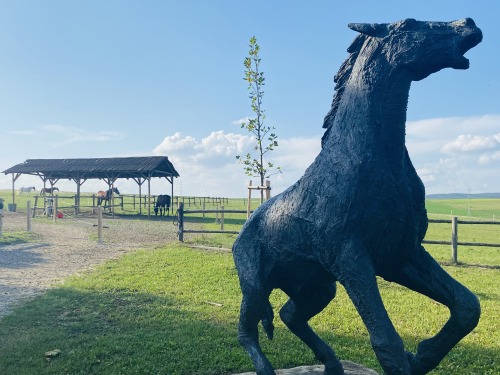
Both sides fought hard, but the French proved more adept at small-scale tactics, with proper support between infantry and cavalry, while the Allied cavalry tended to fight unsupported.
(There’s going to need to be a part 2 as I can only upload so many images to one post, thanks tumblr)
Don’t know what exactly stopped me for months from adapting one of my favourite memes to the Austrian way… but I did it. Finally! 🎉
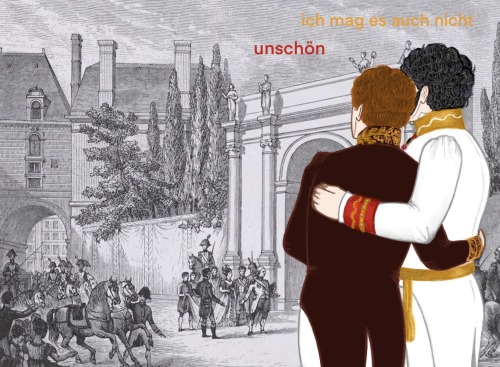
Thus, I dedicate it proudly to Metternich and Schwarzenberg’s lovely correspondence (which I reread almost monthly because o- obsession), to their mutual, truly Habsburg displeasure with Burbon’s dynasty and, at last, to the perfect example of how comfortable two prominent politicians may be with each other in private. 🐍❤️🐍
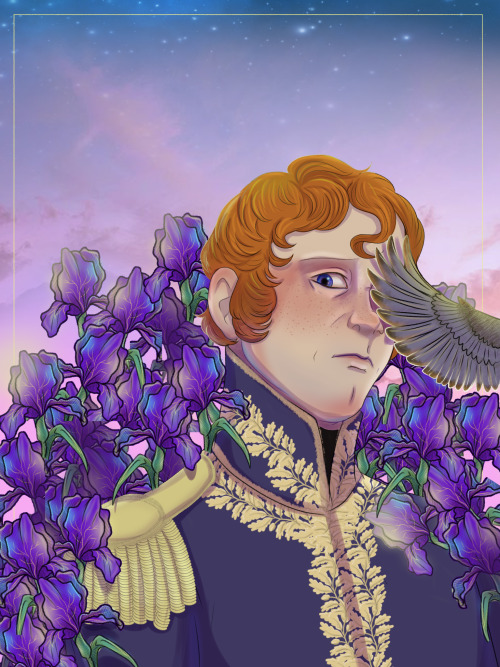
I love flower paintings very much, but I don't like painting flowers.
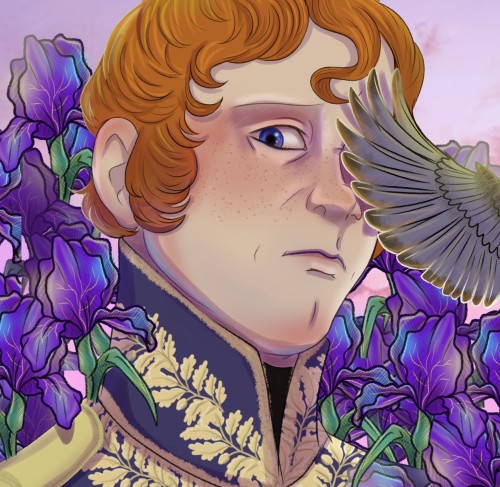
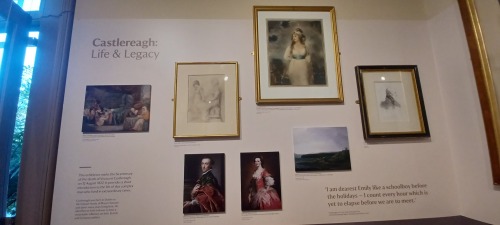
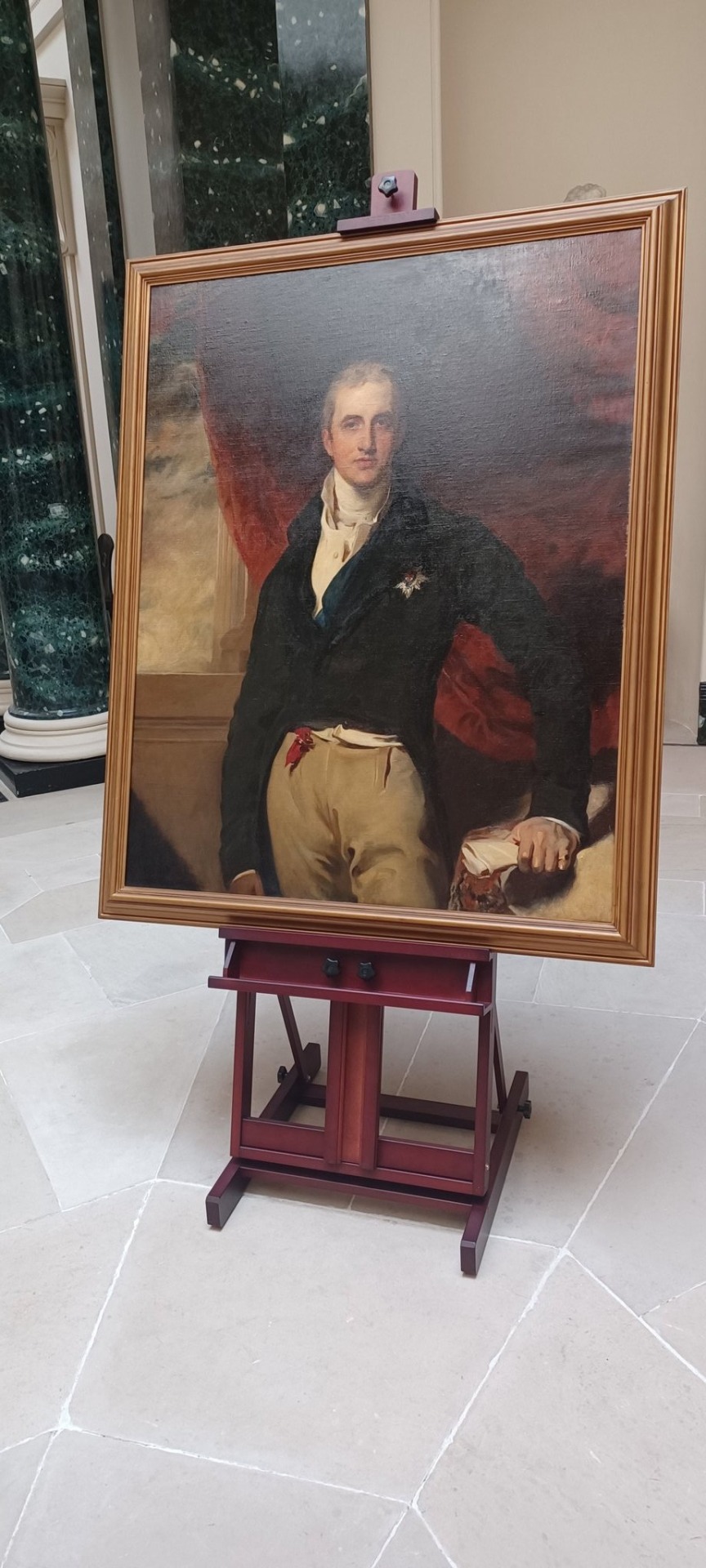
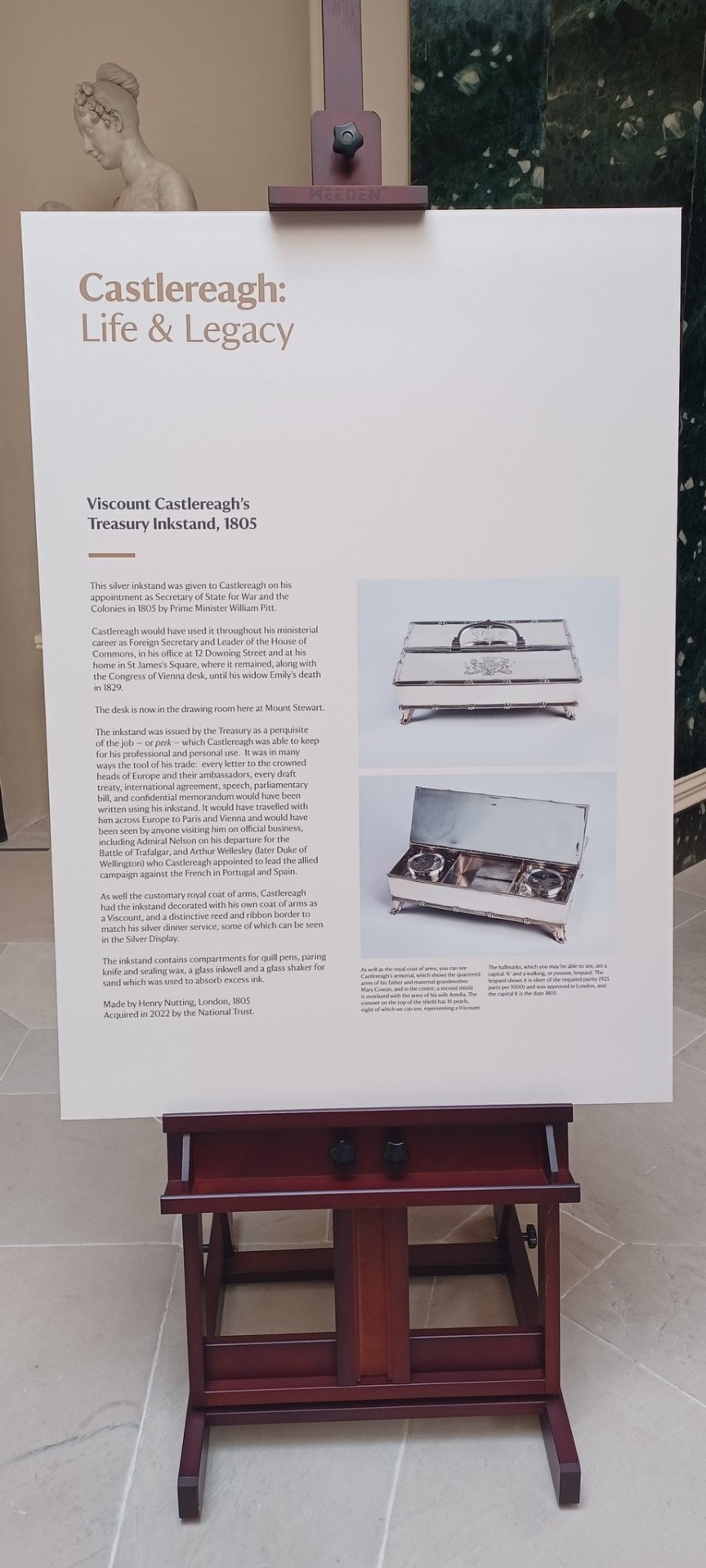
pictures from National Trust’s exhibition of Lord Castlereagh (credit @/karendouglas_NI on twitter)